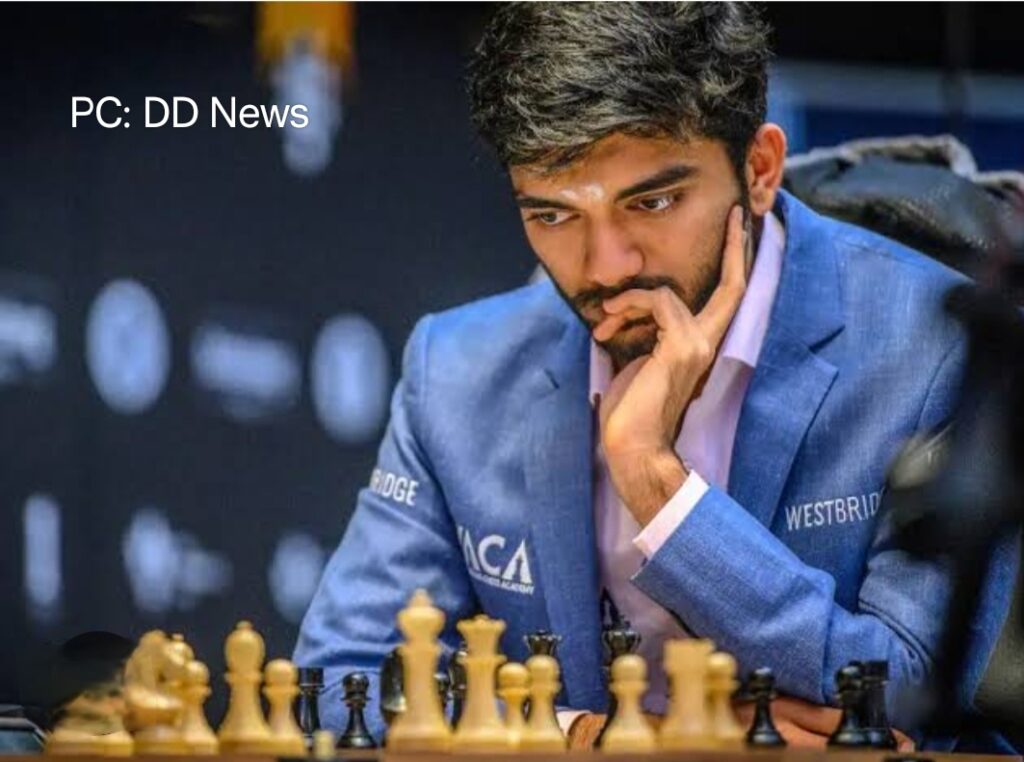In contemporary times, for brand marketing strategy, the use of public personas is increasingly becoming a powerful tool to engage consumers and forge emotional chords. The story of India’s youngest ever chess grandmaster and prodigy, Gukesh Dommaraju is a great case for one whose attributes -mainly strategic acumen, tireless discipline, and enviable endurance, make him unique from others and quite lucrative from a commercial standpoint. In the age of social media, when public figures are very often on the cusp of perceived personal achievement of some significance and financial opportunity, individual identity rights have never been more important. Moment marketing is a practice of commercial entities taking advantage of more contemporary events or accomplishments, like a famous chess tournament victory for promotional purposes, which is particularly in evidence. For Brands, such marketing strategies could be very useful and the free personality rights of a person can be violated unless they do not receive explicit permission.
This article takes the Gukesh Dommaraju case as its prism to discuss the legal framework around personality rights including name, image, and likeness rights. Additionally, it demonstrates how invaluable acquired legitimate consent is when it comes to brand marketing methods, so that people are not exploited commercially incongruently instead of other circumventions of their personal brand integrity.
India’s Legal Arsenal For Protecting Personality Rights
Justice KS Puttaswamy’s case in 2017 enlarged the scope of the fundamental Article 21 in the Indian Constitution to recognize the fundamental right to constitutionalize an individual’s personal information along with the right to privacy. Common law principles of passing off and misappropriation also give rise to the exploitation of identity for commercial exploitation. The provisions of the Trademark Act of 1999 provide for further protections on the trademarks. Section 14 provides that no mark, which is connected to a living person and indicates that such a living person has a connection to the mark, may be registered without the consent of that living person or his presumed agent.
On the other hand, that means Mr Gukesh Dommaraju can register his name as a trademark so that no one else can use it for commercial purposes without having the latter’s consent. Furthermore, the Copyright Act of 1957 is engineered to protect reproductions of artistic works but also protects against unauthorized use of a person’s likeness in visual materials. This is particularly important to Mr. Dommaraju, who is becoming increasingly well-known on all forms of visual media. India’s personality rights are bolstered from a legal perspective by constitutional, trademark and copyright protections and so while India lacks a standalone personality rights law, these are highly leveraged.
Trademark & Licensing: The Secret to Controlling Your Brand
Having correctly structured licensing agreements that are legally enforceable under the Indian Contract Act, of 1872 is possible for personal brand control and generation of monetization. These agreements define what an individual’s name and likeness can and cannot be used for, how the usage must occur, and who stands to profit from that usage. Under the Trademark Act of 1999, individuals are entitled to another layer of protection by registering their names as Trademark. By registering, one gains exclusive ownership rights and reduces the chance of one’s work being used in moment marketing moves, without permission. The case, ICC Development (International Ltd.) vs. Arvee Enterprises and Anr., highlighted how important is the legal framework since the Delhi High Court has held that commercial identity usage requires explicit consent. Moral clauses are usually included in such agreements to protect an individual’s reputation and align them with whatever their value is.
Understanding Consent & Brand Licensing Through PV Sindhu’s Experience
Gukesh Dommaraju’s emerging chess career can incorporate a lot from PV Sindhu’s brand management experience regarding consent and protection of a brand. Because Sindhu is such a pivotal badminton icon, her strategy in handling brand licensing and brand registration, when brands try unauthorized moment marketing after her Olympic victories, has protected her interest. Ethical brand uses legal and ethical underpinnings of ethical brand use are based on proper licensing agreements by which consent is gained. Apart from safeguarding against commercial appropriation, these agreements guarantee that individuals still own their personal brand, and can otherwise take action against image exploitation that contradicts their beliefs. A good way for Gukesh to follow Sindhu’s example is by registering his name as a trademark, and having clear licensing frameworks for his brand management would act as an empowering foundation for all. It takes a proactive approach, avoids nasty litigation, and facilitates strategic partnerships, that respect brand rights and personal values.
Charting The Future Of Personal Branding
A rising chess prodigy, Gukesh Dommaraju can ensure that intellectual property safeguards are properly implemented to protect his property rights and business interests associated with an enlarged public profile. Licensing his name, image, and likeness rights will be strategic to avoid unauthorized commercial exploitation and to enable control and alignment with his professional objectives, and monetization of his name, image, and likeness. Like the pattern created by PV Sindhu in terms of comprehensive trademark registration and licensing framework, Gukesh can efficiently deal with the complexities of such a moment of marketing and brand exploitation. To secure his intellectual property rights, proactive measures can be taken regarding his personal brand, and this would create a place for sound legal protection for his personal brand and a setup for its commercial use.
“Own your identity, build your legacy and let your brand say what you’d like the world to hear.”
Authors: Seema Meena, Manasvi Shah & Apurva Ranjan

